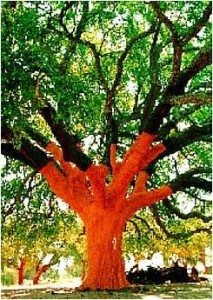Recycling With The Cork Forest Conservation Alliance
Each year in the U.S. over three billion corks are thrown away and wind up in landfills. That’s just not acceptable, so we started thinking about how we could help reuse those natural resources, other than having restaurants and consumers just chuck them in the garbage.
A bit of research led us to partner with the nonprofit organization The Cork Forest Conservation Alliance (CFCA) to help with its effort in recycling wine corks. Now we’re working together to find the most environmentally friendly way to recycle corks and help the CFCA raise awareness about the biodiversity of cork oak forests and their benefits to the environment.
So this month we’re jointly launching a pilot project in the S.F. Bay Area to test a new method collecting and recycling corks. Some other recycling programs ship individual boxes of cork through the mail resulting in the wasteful use of resources. Our new approach is to use distributor delivery trucks to collect corks.
 These trucks are already dropping off wine at restaurants and retail accounts, so why don’t they just pick up corks and bring them back to the warehouse? After pick up, the CFCA ships tons of corks at a time to regional recycling centers only when there is extra space left on a truck. It’s a very low environmental footprint approach and we hopeful it will catch on!
These trucks are already dropping off wine at restaurants and retail accounts, so why don’t they just pick up corks and bring them back to the warehouse? After pick up, the CFCA ships tons of corks at a time to regional recycling centers only when there is extra space left on a truck. It’s a very low environmental footprint approach and we hopeful it will catch on!
One of the goals it to have recycled corks displace the use of other raw and synthetic materials — like petroleum based products. The CFCA is working with recycling partners to make a variety of products like, flooring, wall tiles, inserts for wine bottle shippers and even jewelry. As a steady and increasing supply of corks become available more products can be made from cork.
Cork Facts
- Corks comes from the quercus suber, a variety of oak tree
- Cork oak forests support one of the world’s highest levels of biodiversity and are home to numerous endangered species and prevent desertification of the arid region
- Cork oak trees are not cut down, rather, the bark is hand harvested every 9 years and they can live up to 300 years
- These forests absorb millions of tons of CO2 each year as they re-grow their bark and are a vast provider of oxygen to our planet
- In comparison to a natural cork production: Screw-caps have 24 times the CO2 emissions & 10 times the energy use
- There are 6.6 million acres of Mediterranean cork forests and the thousands of family farmers who work them



